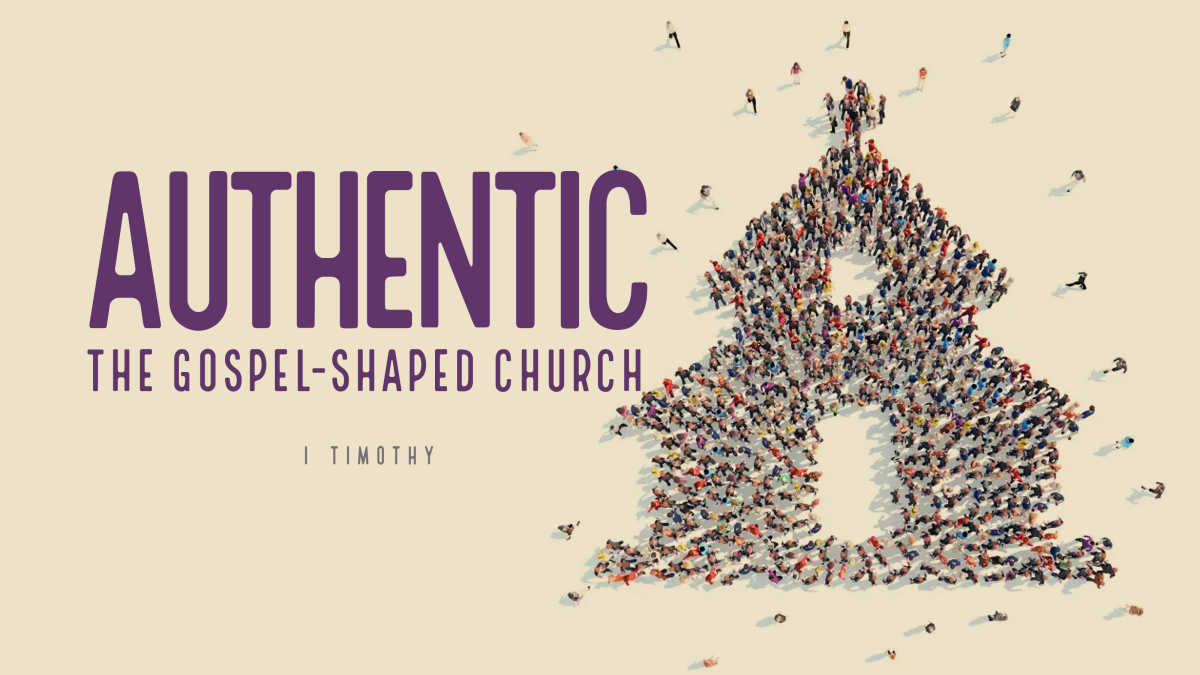Elizabeth Thompson-Hahne is a long-time member of Church on Mill. You might recognize her as being the first friendly face you ever saw at Church on Mill, because she is the joyful leader of the greeting ministry. She has ample wisdom to offer on the topic of anxiety through her experience and studies.
All the countries of the world are dominated by anxiety right now. Almost everyone in the world is worried that they could die or at least get very, very ill. The financial implications of the pandemic have many people fearful of losing the ability to provide the necessities of life for themselves and their families. Fearing death, pain, and loss is a normal human response. As a believer in the saving grace of God, I know that to die is to be with Jesus (a wonderful thought). However, the process of getting there (pain and suffering until death) does not seem very appealing!
I have a tendency to expect the worst. I think that if I expect the worst to happen, I won’t be surprised if it does. Somehow that gives me the illusion of controlling the outcomes. In my early adulthood there were many late-night phone calls to my parents, crying and fearful of an upcoming exam, a paper due, or too much work and too little time. “Please pray mom and dad – I can’t do this. I will fail and then what will I do?” I’d like to say I grew out of living with anxiety after I finished my studies, but unfortunately there is still plenty to be worried about! Working life, family life, and a world feeling out of control provide lots of anxious moments. We are not only worried about illness, lack of financial security, and hope for the future, but we can also be worried about “being worried”! “Godly Christians don’t worry –right? God has this under control – just relax.” I wish it were that simple.
Our goal in the Christian walk is to be more like Jesus. To conform to his image. Surely Jesus was never anxious and worried? That doesn’t sound right. You might be surprised.
Just before Jesus was arrested and sentenced to death, he went to the Garden of Gethsemane with three of his disciples. He asked them to watch and pray with him. Luke 22:39–46 recounts Jesus’ experience:
39 And he came out and went, as was his custom, to the Mount of Olives, and the disciples followed him. 40 And when he came to the place, he said to them, “Pray that you may not enter into temptation.” 41 And he withdrew from them about a stone’s throw, and knelt down and prayed, 42 saying, “Father, if you are willing, remove this cup from me. Nevertheless, not my will, but yours, be done.” 43 And there appeared to him an angel from heaven, strengthening him. 44 And being in an agony he prayed more earnestly; and his sweat became like great drops of blood falling down to the ground. 45 And when he rose from prayer, he came to the disciples and found them sleeping for sorrow, 46 and he said to them, “Why are you sleeping? Rise and pray that you may not enter into temptation.”
Jesus knew what was to happen next. He was not walking happily to his death. He was praying for strength and begging not to suffer a death where he was taking on punishment for the sins of the world. There was a lot to be worried about! He asked his Father, “If it is possible can I not have to do this? Is there another way? But if not, I submit to your best plan.” He was so stressed while praying that he was “in agony” and he was sweating great drops of blood (verse 44). This sounds like anxiety to me. How was this possible? Isn’t he God? Yes, but he was also fully human. Being fully human means he had emotions.
Joy and happiness, the experience of romantic love, and friendship are all great emotions we wouldn’t want to live without. Fear also can be a useful emotion, because it can protect us from harm. But when fear turns into crippling anxiety, it can be a problem. It is what we do with our emotions that God is concerned about.
Anxiety can sometimes get in the way of our relationship with God. We can feel paralyzed, which hinders our ability to step out in faith and live the life of worship and service that God has called us to.
Dealing with anxiety requires hope and patience. The hardest thing for me about the pandemic is living without hope that everything will get better. Will there be a vaccine or perfect treatment? Nobody knows. We need patience to wait for God’s answers because the answers are not always when and what we think will be best, (Hebrews 11:1, 13).
What can this event in Jesus’ life teach us about dealing with anxiety?
1) God loves you.
During Jesus’ time in the Garden of Gethsemane, Jesus prayed to his Father, “I made known to them your name, and I will continue to make it known, that the love with which you have loved me may be in them, and I in them,” (John 17:26). God loves us as he loved his son Jesus. We can trust someone who loves us that much. When you are overwhelmed with anxiety, stop and just dwell on God’s love for you. There are many Scripture verses describing the Father’s great love for us (e.g. John 3:16, Romans 8:35-39; 5:8; etc.). Meditate on the verse that speaks to you and claim it for yourself in that moment.
Listen to or sing a Scripture-based song or hymn, such as “How Deep the Father’s Love for Us” or “Amazing Grace” (especially verses 2 and 3). Our auditory senses can touch our emotions when we are just too anxious to read. Acts 16:22 describes Paul and Silas singing hymns and praying while they were in prison awaiting trial.
2) Talk to God.
Be completely honest with yourself and God. Remember that God knows you better than you know yourself. That might involve some uncomfortable truths. Let your requests be made known to God. Jesus asked God to spare Him this trial – Jesus prayed “Remove this cup (trial) from me,” (Luke 22:42). That was a pretty big request, given that all prophesy in the Old Testament had led to this moment. No request was off the table. God didn’t reprimand Him for asking. God wants to hear your heart’s desire, all of your worries and fears. 1 Peter 5:7 urges us, “Casting all your anxieties on him, because he cares for you.”
3) Be willing to accept God’s answer.
After making his request to God the Father, Jesus prays “nevertheless, not my will, but yours, be done,” (Luke 22:42). The answer to our prayer may be “Yes,” “No,” or very often “Wait for the right time.” This is the hardest part of dealing with anxiety. How do I wait when my worry is destroying my life, resulting in no sleep and impeding my ability to think clearly and get anything done? James 5:7-8 describes the need for patience in suffering:
7 Be patient, therefore, brothers, until the coming of the Lord. See how the farmer waits for the precious fruit of the earth, being patient about it, until it receives the early and the late rains. 8 You also, be patient. Establish your hearts, for the coming of the Lord is at hand.
4) You are not alone.
Let God comfort and support you during this anxious time. God promises “I will never leave you nor forsake you,” (Hebrews 13:5). While Jesus was passionately praying in the Garden of Gethsemane, Luke 22:43 says, “there appeared to him an angel from heaven, strengthening him.” In spiritual battles and times of trial, God always offers his comfort, sometimes by sending an angel. Although I have never seen an angel, I am confident I have known their presence. I just have to pay attention, take my eyes off myself and “see” instead the holy angel kneeling beside me as I pray and accept God’s comfort and peace. Rest in God’s presence – the God of the universe is listening to you and surrounding you with his love.
5) Leave it with God.
When Jesus finished praying, verse 45 tells us that he rose and went to speak to his disciples. He got up and went about God’s business. I find that if I don’t have an end to my prayers then the worries continue to dwell on my mind. Prayers disintegrate into “mind wandering” and sinking deeper into the mire of worry. Pray for as long as God leads you in prayer and the Holy Spirit is guiding your intercession. When Jesus finished praying and being comforted by God, he continued in his service to God by teaching and leading the disciples. There is still worship and service to do.
When anxiety begins to creep back into your mind, remind yourself that you have given this to God and you trust Him to answer those prayers. Isaiah 40:31 promises us, “They who wait for the LORD shall renew their strength; they shall mount up with wings like eagles; they shall run and not be weary; they shall walk and not faint.”
6) Share your burden with a trusted believer.
Often it is appropriate to share your burden with a fellow believer. It is an honor and privilege to pray for others. Don’t deprive your brothers and sisters in Christ of the joy of walking with you in a difficult time. God may be using them as a way to help support you. James 5:16 urges us, “Pray for one another, that you may be healed. The prayer of a righteous person has great power as it is working.”
There are times that the trials are heavy and persistent in their burden. God may want to use a professional counselor to help you see the issues more clearly and to provide insight and support that they are best equipped to provide. If you are not sure whether this is for you, approach an elder or church leader for guidance.
Jesus promises us, “I have said these things to you, that in me you may have peace. In the world you will have tribulation. But take heart; I have overcome the world,” (John 16:33).
Elizabeth Thompson-Hahne






